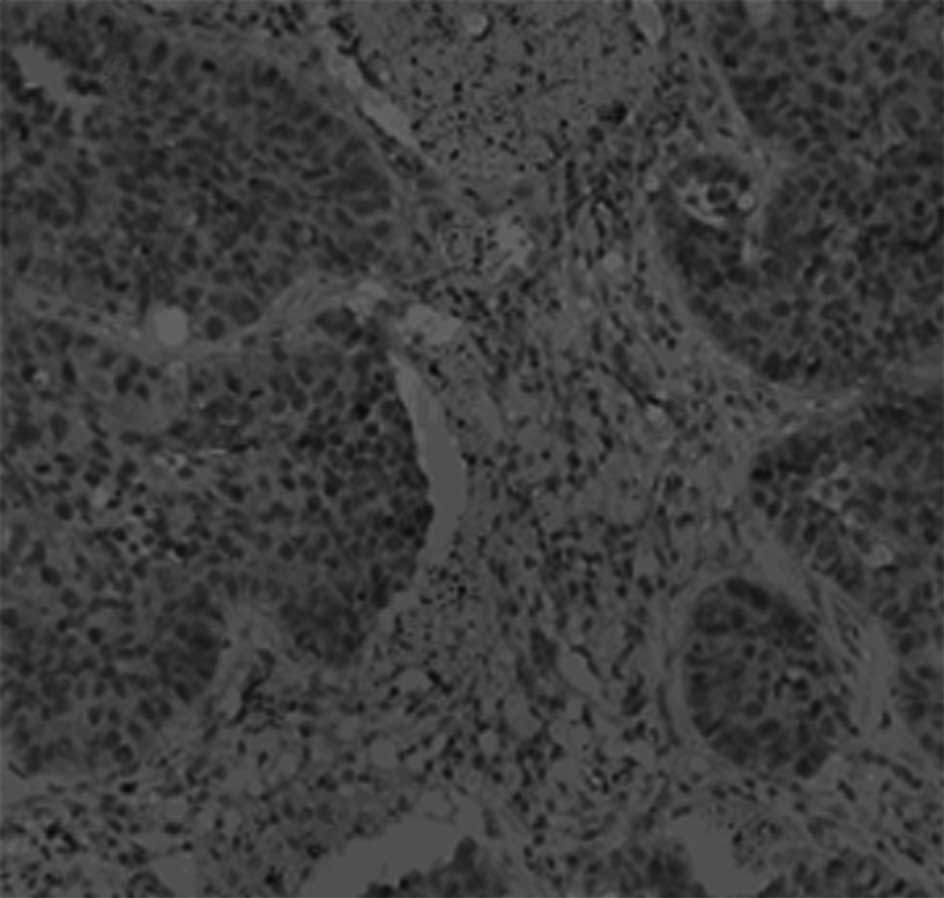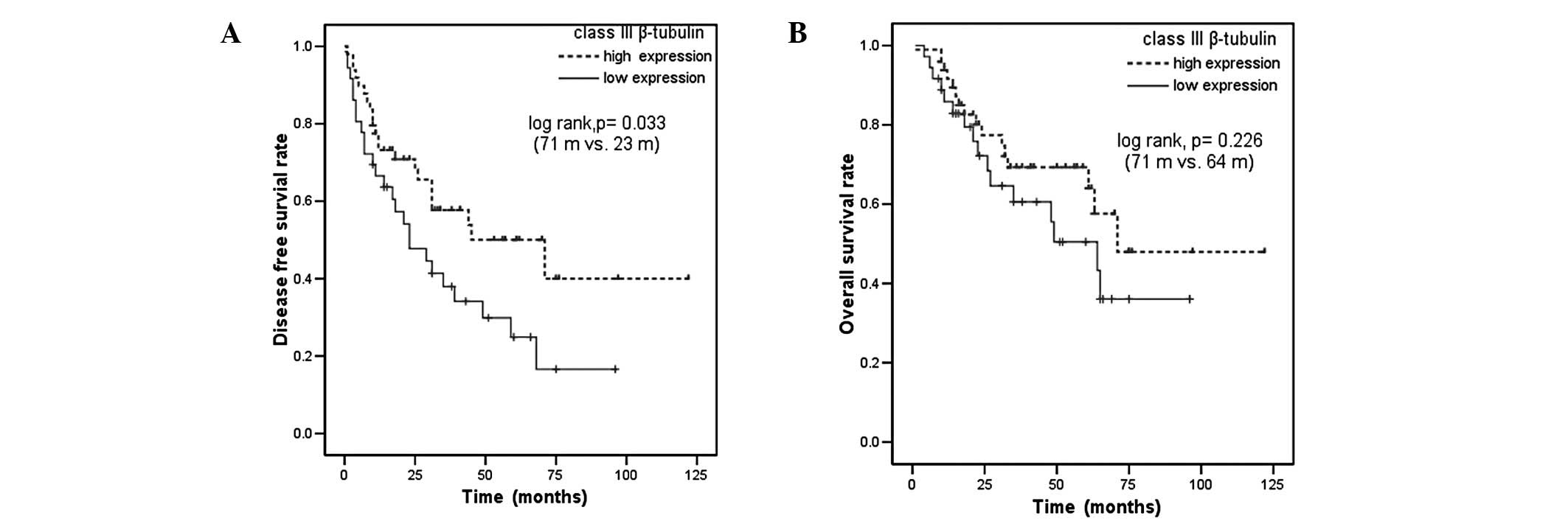Spandidos Publications style
Zhang Y, Yang H, Liu J, Deng Q, He P, Lin Y, Jiang J, Gu X, Mo M, Pan H, Pan H, et al: High expression levels of class III β‑tubulin in resected non‑small cell lung cancer patients are predictive of improved patient survival after vinorelbine‑based adjuvant chemotherapy. Oncol Lett 6: 220-226, 2013.
APA
Zhang, Y., Yang, H., Liu, J., Deng, Q., He, P., Lin, Y. ... He, J. (2013). High expression levels of class III β‑tubulin in resected non‑small cell lung cancer patients are predictive of improved patient survival after vinorelbine‑based adjuvant chemotherapy. Oncology Letters, 6, 220-226. https://doi.org/10.3892/ol.2013.1323
MLA
Zhang, Y., Yang, H., Liu, J., Deng, Q., He, P., Lin, Y., Jiang, J., Gu, X., Mo, M., Pan, H., Xiong, X., Qiu, Y., He, J."High expression levels of class III β‑tubulin in resected non‑small cell lung cancer patients are predictive of improved patient survival after vinorelbine‑based adjuvant chemotherapy". Oncology Letters 6.1 (2013): 220-226.
Chicago
Zhang, Y., Yang, H., Liu, J., Deng, Q., He, P., Lin, Y., Jiang, J., Gu, X., Mo, M., Pan, H., Xiong, X., Qiu, Y., He, J."High expression levels of class III β‑tubulin in resected non‑small cell lung cancer patients are predictive of improved patient survival after vinorelbine‑based adjuvant chemotherapy". Oncology Letters 6, no. 1 (2013): 220-226. https://doi.org/10.3892/ol.2013.1323



















